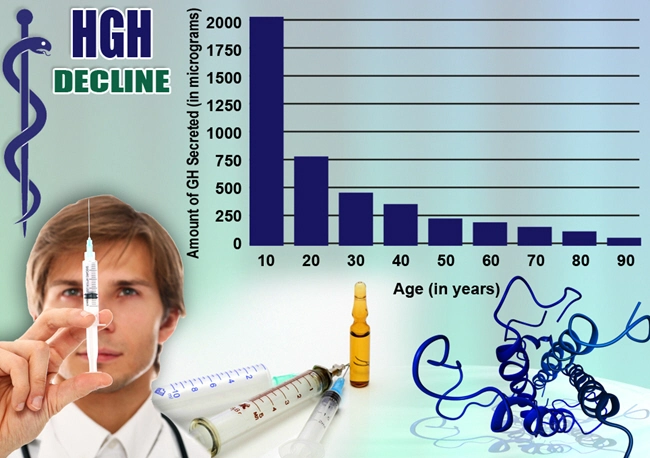
Introduction
The use of performance-enhancing drugs in sports has long been a contentious issue, sparking debates over fairness, health, and ethics. Among the myriad of substances that have entered this controversial arena is Viagra, a medication primarily used for treating erectile dysfunction. Originally developed to improve blood flow, Viagra's potential to enhance athletic performance has led to its scrutiny and use in various sports. This article delves into the implications of Viagra's use in sports, examining both its potential benefits and the ethical dilemmas it poses.
Viagra's Mechanism and Athletic Performance
Viagra, generically known as sildenafil, works by inhibiting the enzyme phosphodiesterase type 5 (PDE5), which results in increased levels of cyclic guanosine monophosphate (cGMP). This biochemical reaction leads to the relaxation of smooth muscle cells and vasodilation, primarily in the penile tissue, but also throughout the body. The increased blood flow can potentially enhance oxygen delivery to muscles, thereby improving endurance and reducing fatigue during physical exertion.
Athletes in endurance sports, such as cycling and long-distance running, have reportedly used Viagra to gain a competitive edge. The drug's ability to improve blood flow and oxygenation could theoretically translate into better performance, particularly in high-altitude conditions where oxygen availability is reduced. Studies have shown mixed results, with some suggesting a marginal benefit in endurance, while others find no significant impact on athletic performance.
Ethical Considerations and Regulatory Challenges
The use of Viagra in sports raises significant ethical questions. Is it fair for athletes to use a medication designed for a medical condition to gain a competitive advantage? The World Anti-Doping Agency (WADA) has not explicitly banned Viagra, but it remains on the agency's monitoring program due to its potential performance-enhancing effects. This gray area complicates the regulation of the drug in competitive sports.
Moreover, the use of Viagra for performance enhancement can lead to health risks. While generally safe for its intended use, the drug can cause side effects such as headaches, dizziness, and vision disturbances, which could impair an athlete's performance or health. The long-term effects of using Viagra in non-prescribed contexts are not well understood, adding another layer of concern.
Public Perception and the Future of Performance Enhancement
Public perception of performance-enhancing drugs in sports is often negative, with many viewing their use as cheating. The use of Viagra, a drug associated with sexual health, adds a unique dimension to this debate. It challenges societal norms and raises questions about the boundaries of acceptable performance enhancement.
As sports medicine continues to evolve, the line between therapeutic use and performance enhancement will likely become increasingly blurred. The case of Viagra in sports exemplifies the need for ongoing dialogue and research to address these complex issues. Ethical guidelines, transparent regulations, and education about the risks and benefits of such substances are crucial in navigating this challenging landscape.
Conclusion
Viagra's potential role in enhancing athletic performance highlights the broader debate over performance-enhancing drugs in sports. While the drug may offer marginal benefits in endurance and oxygenation, its use raises significant ethical and health concerns. As the sports world grapples with these issues, it is essential to balance the pursuit of excellence with fairness, safety, and integrity. The ongoing discussion about Viagra and other performance-enhancing substances will undoubtedly shape the future of competitive sports.
Contact Us Today For A Free Consultation
Dear Patient,
Once you have completing the above contact form, for security purposes and confirmation, please confirm your information by calling us.
Please call now: 1-800-380-5339.
Welcoming You To Our Clinic, Professor Tom Henderson.

- Optimizing Viagra Efficacy: The Role of Diet in Enhancing or Impeding Its Effects [Last Updated On: February 20th, 2025] [Originally Added On: February 20th, 2025]
- Viagra's Evolution: The Groundbreaking Tale of Sildenafil in Transforming Erectile Dysfunction Therapy [Last Updated On: February 25th, 2025] [Originally Added On: February 25th, 2025]
- The Efficacy of Sildenafil: An Executed Symphony of Chemical Reactions [Last Updated On: February 26th, 2025] [Originally Added On: February 26th, 2025]
- Unraveling the Enigma: Viagra and Generic Sildenafil Dissected [Last Updated On: February 27th, 2025] [Originally Added On: February 27th, 2025]
- Unraveling the Magic Behind Viagra: A Comprehensive Review on Its Mode of Action [Last Updated On: February 28th, 2025] [Originally Added On: February 28th, 2025]
- Transcending Boundaries: The Progressive Transition in Erectile Dysfunction Therapies [Last Updated On: February 28th, 2025] [Originally Added On: February 28th, 2025]
- Deciphering the Biochemical Intricacies of Sildenafil: A Closer Look [Last Updated On: March 1st, 2025] [Originally Added On: March 1st, 2025]
- Sildenafil’s Double-Edged Sword: A Veritable Panacea or Silent Cardiovascular Threat? [Last Updated On: March 2nd, 2025] [Originally Added On: March 2nd, 2025]
- Optimizing Sildenafil Dosage for Effective Erectile Dysfunction Treatment: Guidelines and Considerations [Last Updated On: March 3rd, 2025] [Originally Added On: March 3rd, 2025]
- Comprehensive Guide to Viagra: Uses, Side Effects, and Precautions [Last Updated On: March 4th, 2025] [Originally Added On: March 4th, 2025]
- Managing Viagra Side Effects: Practical Tips for American Men [Last Updated On: March 5th, 2025] [Originally Added On: March 5th, 2025]
- Exploring Viagra's Impact on Men with Hypertension and Cardiovascular Health [Last Updated On: March 6th, 2025] [Originally Added On: March 6th, 2025]
- Age-Related Effects on Viagra's Efficacy: A Comprehensive Guide for American Men's Sexual Health [Last Updated On: March 7th, 2025] [Originally Added On: March 7th, 2025]
- Optimizing Viagra Use for Diabetic Men: Efficacy, Safety, and Dosage Considerations Explored [Last Updated On: March 8th, 2025] [Originally Added On: March 8th, 2025]
- The Psychological Impact of Viagra: Enhancing Self-Esteem and Relationship Satisfaction [Last Updated On: March 9th, 2025] [Originally Added On: March 9th, 2025]
- Comparing Viagra, Cialis, and Levitra: Effective ED Treatments for American Men [Last Updated On: March 10th, 2025] [Originally Added On: March 10th, 2025]
- Revolutionizing ED Care: Exploring Advanced Treatments Beyond Traditional Medications [Last Updated On: March 10th, 2025] [Originally Added On: March 10th, 2025]
- The Evolution of Male Sexual Health: The Impact of Viagra on Culture and Well-being [Last Updated On: March 12th, 2025] [Originally Added On: March 12th, 2025]
- Unveiling the Impact of Viagra: Transformative Stories from American Men [Last Updated On: March 13th, 2025] [Originally Added On: March 13th, 2025]
- Unveiling the Impact of Lifestyle on Viagra's Performance: A Guide for American Males [Last Updated On: March 15th, 2025] [Originally Added On: March 15th, 2025]
- Viagra and Libido: Understanding the Impact and Dispelling Myths [Last Updated On: March 16th, 2025] [Originally Added On: March 16th, 2025]
- Placebo Effect's Role in Enhancing Viagra's Efficacy for Erectile Dysfunction [Last Updated On: March 17th, 2025] [Originally Added On: March 17th, 2025]
- Viagra: Dispelling Myths and Understanding Realities for American Males [Last Updated On: March 18th, 2025] [Originally Added On: March 18th, 2025]
- Viagra's Recreational Use Among American Males: Risks, Rewards, and Implications [Last Updated On: March 18th, 2025] [Originally Added On: March 18th, 2025]
- Viagra's Global Impact and Dominance in American Male Sexual Health Market [Last Updated On: March 18th, 2025] [Originally Added On: March 18th, 2025]
- Viagra and Alcohol: Risks, Interactions, and Safe Usage Guidelines for American Men [Last Updated On: March 19th, 2025] [Originally Added On: March 19th, 2025]
- Sildenafil's Versatile Applications for American Males Beyond Erectile Dysfunction [Last Updated On: March 21st, 2025] [Originally Added On: March 21st, 2025]
- Sildenafil: From Viagra to Vital - Transforming Sexual Health in American Males [Last Updated On: March 21st, 2025] [Originally Added On: March 21st, 2025]
- Global Viagra Pricing: Factors, Comparisons, and Cost-Saving Strategies for American Males [Last Updated On: March 21st, 2025] [Originally Added On: March 21st, 2025]
- Stress-Induced ED in American Men: Viagra's Role and Holistic Management Strategies [Last Updated On: March 21st, 2025] [Originally Added On: March 21st, 2025]
- Viagra's Impact on Mental Health in American Men: Benefits and Challenges [Last Updated On: March 22nd, 2025] [Originally Added On: March 22nd, 2025]
- Generic Sildenafil: Transforming ED Treatment with Affordable, Effective Solutions [Last Updated On: March 22nd, 2025] [Originally Added On: March 22nd, 2025]
- Viagra: Uses, Mechanism, and Critical Drug Interactions for Safe Use [Last Updated On: March 22nd, 2025] [Originally Added On: March 22nd, 2025]
- Navigating Safe Viagra Purchases: Avoiding Counterfeits and Ensuring Efficacy for American Males [Last Updated On: March 22nd, 2025] [Originally Added On: March 22nd, 2025]
- Sildenafil vs. Other Oral ED Medications: A Comprehensive Guide for American Men [Last Updated On: March 22nd, 2025] [Originally Added On: March 22nd, 2025]
- Viagra's Role in Sexual Rehabilitation for American Males Post-Surgery [Last Updated On: March 22nd, 2025] [Originally Added On: March 22nd, 2025]
- Viagra: Safe Usage Guide for Treating Erectile Dysfunction in Men [Last Updated On: March 23rd, 2025] [Originally Added On: March 23rd, 2025]
- Viagra's Role in Treating Pulmonary Hypertension in American Males: Benefits and Management [Last Updated On: March 23rd, 2025] [Originally Added On: March 23rd, 2025]
- Sildenafil's Off-Label Uses: Enhancing American Men's Health Beyond ED Treatment [Last Updated On: March 23rd, 2025] [Originally Added On: March 23rd, 2025]
- Sildenafil: Revolutionizing ED Treatment for American Men - Uses, Benefits, Considerations [Last Updated On: March 23rd, 2025] [Originally Added On: March 23rd, 2025]
- Cultural Attitudes Shaping Viagra Use Among American Men: Stigma, Media, and Economics [Last Updated On: March 23rd, 2025] [Originally Added On: March 23rd, 2025]
- Viagra's Impact on Prostate Health: Benefits and Considerations for American Men [Last Updated On: March 24th, 2025] [Originally Added On: March 24th, 2025]
- Viagra: Boosting Sexual Confidence and Performance in American Men [Last Updated On: March 24th, 2025] [Originally Added On: March 24th, 2025]
- Understanding Sexual Arousal and Viagra's Role in Treating Erectile Dysfunction [Last Updated On: March 24th, 2025] [Originally Added On: March 24th, 2025]
- Viagra's Impact on American Couples: Enhancing Intimacy and Fostering Relationship Growth [Last Updated On: March 24th, 2025] [Originally Added On: March 24th, 2025]
- Viagra's Impact: Transforming ED Treatment and Societal Attitudes in America [Last Updated On: March 24th, 2025] [Originally Added On: March 24th, 2025]
- Viagra: Enhancing Sexual Performance and Quality of Life for American Men [Last Updated On: March 24th, 2025] [Originally Added On: March 24th, 2025]
- Viagra: Revolutionizing ED Treatment and Enhancing Men's Quality of Life [Last Updated On: March 24th, 2025] [Originally Added On: March 24th, 2025]
- Viagra's Recreational Use: Medical, Ethical, and Societal Impacts in America [Last Updated On: March 25th, 2025] [Originally Added On: March 25th, 2025]
- Viagra's Impact on Sexual Medicine: From ED Treatment to Broader Health Insights [Last Updated On: March 25th, 2025] [Originally Added On: March 25th, 2025]
- Navigating Viagra Discussions with Doctors: A Guide for American Men [Last Updated On: March 25th, 2025] [Originally Added On: March 25th, 2025]
- Viagra and Exercise: Synergistic Benefits for Men's Sexual and Cardiovascular Health [Last Updated On: March 25th, 2025] [Originally Added On: March 25th, 2025]
- Viagra: Understanding and Managing Erectile Dysfunction Effectively [Last Updated On: March 25th, 2025] [Originally Added On: March 25th, 2025]
- Smoking's Impact on Viagra Efficacy: Insights for American Males with ED [Last Updated On: March 26th, 2025] [Originally Added On: March 26th, 2025]
- Viagra's Cultural Journey: Iconic Impact on American Pop Culture and Masculinity [Last Updated On: March 26th, 2025] [Originally Added On: March 26th, 2025]
- Viagra's Mechanism: Enhancing Blood Flow for Erectile Dysfunction Treatment [Last Updated On: March 26th, 2025] [Originally Added On: March 26th, 2025]
- Viagra in the U.S.: Regulations, Access, and Legal Landscape Overview [Last Updated On: March 26th, 2025] [Originally Added On: March 26th, 2025]
- Sildenafil Contraindications: Essential Safety Guide for American Males [Last Updated On: March 27th, 2025] [Originally Added On: March 27th, 2025]
- Viagra: Enhancing Sexual Health Safely with Sildenafil [Last Updated On: March 27th, 2025] [Originally Added On: March 27th, 2025]
- Viagra's Impact on Hormonal Balance in American Men: A Comprehensive Review [Last Updated On: March 27th, 2025] [Originally Added On: March 27th, 2025]
- Maximizing Viagra Benefits: Usage, Mechanism, Side Effects, and Safety for ED Treatment [Last Updated On: March 27th, 2025] [Originally Added On: March 27th, 2025]
- Telemedicine Enhances Viagra Access for American Males: Convenience, Privacy, and Safety [Last Updated On: March 27th, 2025] [Originally Added On: March 27th, 2025]
- Viagra Use and Patient Privacy: Navigating HIPAA and Telemedicine for ED Treatment [Last Updated On: March 27th, 2025] [Originally Added On: March 27th, 2025]
- Sildenafil's Impact on Urology: From ED to Broader Applications in American Men [Last Updated On: March 28th, 2025] [Originally Added On: March 28th, 2025]
- Viagra's Economic Impact on U.S. Pharmaceutical Industry and ED Treatment Evolution [Last Updated On: March 29th, 2025] [Originally Added On: March 29th, 2025]
- Generic Sildenafil: Revolutionizing ED Treatment with Affordable Access [Last Updated On: March 29th, 2025] [Originally Added On: March 29th, 2025]
- Ethical Dilemmas in Viagra Advertising: Impact and Oversight [Last Updated On: March 29th, 2025] [Originally Added On: March 29th, 2025]
- Viagra vs. Natural Remedies for ED: Efficacy, Side Effects, and Cost Compared [Last Updated On: March 29th, 2025] [Originally Added On: March 29th, 2025]
- Viagra and Male Fertility: Myths, Facts, and Indirect Benefits Explored [Last Updated On: March 29th, 2025] [Originally Added On: March 29th, 2025]
- Testosterone Levels Enhance Viagra Efficacy in American Men: Optimizing ED Treatment [Last Updated On: March 29th, 2025] [Originally Added On: March 29th, 2025]
- Viagra's Journey: From Hypertension Drug to ED Treatment via FDA Approval [Last Updated On: March 30th, 2025] [Originally Added On: March 30th, 2025]
- Viagra's Impact on Sexual Satisfaction and Relationship Dynamics in American Males [Last Updated On: April 2nd, 2025] [Originally Added On: April 2nd, 2025]
- Long-Term Viagra Use: Benefits, Risks, and Health Impacts for American Males [Last Updated On: April 2nd, 2025] [Originally Added On: April 2nd, 2025]
- Viagra Use in Men with Chronic Illnesses: Safety, Interactions, and Management [Last Updated On: April 4th, 2025] [Originally Added On: April 4th, 2025]
- Sildenafil: Restoring Sexual Function and Enhancing Life Post-Injury for American Men [Last Updated On: April 5th, 2025] [Originally Added On: April 5th, 2025]
- Viagra's Role in Treating Erectile Dysfunction Among Younger Men: A Comprehensive Overview [Last Updated On: April 5th, 2025] [Originally Added On: April 5th, 2025]
- Erectile Dysfunction: Sildenafil vs. Lifestyle Changes - Efficacy and Considerations for American Males [Last Updated On: April 6th, 2025] [Originally Added On: April 6th, 2025]
- Viagra Interactions: Critical Considerations for American Males with Multiple Medications [Last Updated On: April 7th, 2025] [Originally Added On: April 7th, 2025]
- Sildenafil Pharmacokinetics: Optimizing Use for American Males with ED [Last Updated On: April 7th, 2025] [Originally Added On: April 7th, 2025]
- Viagra vs. Other ED Treatments: Efficacy, Side Effects, and Patient Satisfaction Compared [Last Updated On: April 8th, 2025] [Originally Added On: April 8th, 2025]









